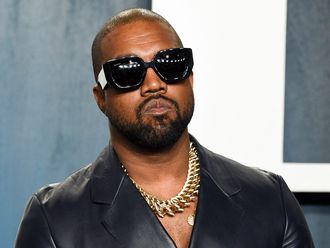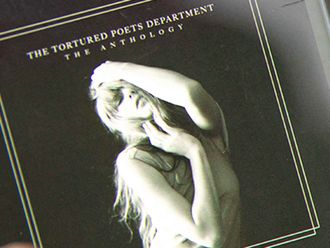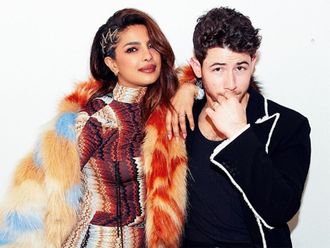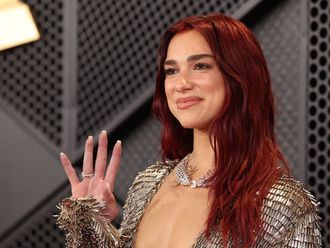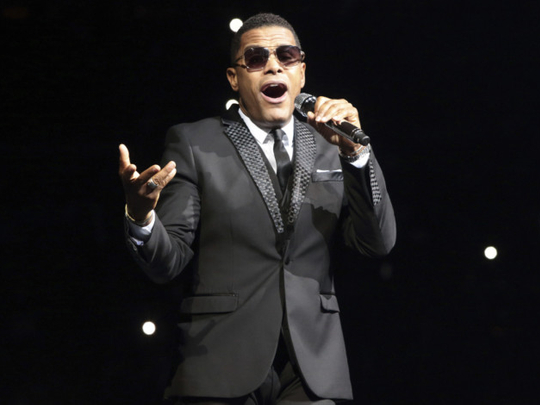
Maxwell has been the prince of neo-soul since his debut album, Maxwell’s Urban Hang Suite, came out in 1996. He has a new royal title, though, on his King and Queen of Hearts World Tour with Mary J. Blige.
Maxwell, 43, has been touring to promote his new album, blackSUMMERS’night, the second in a trilogy that began seven years ago with BLACKsummers’night (and will conclude with an album called, yes, blacksummers’NIGHT).
When the tour was launched in Europe, Maxwell used backdrops of Nelson Mandela and the Rev. Martin Luther King Jr. and brought up sociopolitical themes, but his set was filled with his romantic groove, as well as occasional salutes to Prince.
We spoke recently with the singer-songwriter while he was in London, where he was preparing to take the stage at the 02 Arena.
How has the tour been going in Europe?
It’s been great. Working with Mary is a dream. We’ve known each other for a long time. When we have moments when we can hang out, we hang out. We rest our voices. She’s very disciplined that way, so it’s been very inspirational to me. And the audiences have been really, really receptive in a nice, warm way to what we’re doing.
So far you’ve each been doing your own sets. Will you get to duet?
We’re going to figure it out when we get to the States. We’re just getting our feet wet, dealing with different stages where the set can fit in, or not fit in, at certain venues. When we get to the States, we can have a much more consistent experience as far as the scope and size of everything, so we’ll be able to interact a little bit more than we’ve been able to.
I assume it’s called the King and Queen of Hearts Tour for romantic reasons.
She named the tour; she’s really clever that way. All of our music is pretty much love songs, or inspired by love, or finding love, or analysing it. We’re basically speaking of matters of the heart. I’ve had 20 years in the business, she’s had about 25, so it sort of makes sense we could speak on something during the evening.
It seems there’s been some sociopolitical content, as well. If Mary’s not singing American Skin (41 Shots), as she did to Hillary Clinton, you’re putting up projections of current events and past activists.
She’s got a lot of personal stuff that she deals with, very eloquently, I think. She just speaks to our audience so truthfully and with great respect and purpose. On my end, I definitely have a lot of social things that involve civil rights issues and things in regard to Haiti and global warming. It’s very subtle. I’m not trying to be CNN on the stage. I just want to send the message as I can send it and give people listening the chance to tune in if they want to. Or they can just listen to the music. It’s up to them. It’s not a heavy-duty rally, per se.
You work within the traditions of R&B, an area that seems endangered in a world gone to hip hop and electronic dance music.
It may be hard to market it or whatever, but I do it because I like doing it. I don’t think in terms of marketing or what’s working on radio or not. It’s just what I was into. I’m just grateful that great music is always going to be in style. Even if the popular music isn’t always musical, good music will always be in style. It may go through cycles where it goes in and out, and people will retool it somehow, but you’ll always want to go back to the soul of things. There’s nothing like a piano and a voice and guitar.
You released the second part of your trilogy this summer, seven years after the first. Are you still on track to do the third in a timely fashion? And is it turning out how you envisioned it all from the beginning?
I’m definitely committed in getting past this album title for sure. I want to move on to a new plane. But, yeah, it all comes together in one fell swoop. It was what I did based on the fact that I only had three records left on my contract at the time, and I said, “Hey, I have an idea, let’s do this.” A lot of the people I look up to, from Prince to various people who have put out triple records, I just found that a fascinating thing to do, especially at a time when a single is pretty much what people care about. ... The first part did very well, and the second has been pretty nice. People have been kind and positive about it, and, hopefully, the third will be just the same if not better. But I don’t work toward that goal — acceptance. I’m a take-me-as-I-am type of thing.
You mention Prince. You’ve been covering his songs occasionally on the tour.
There’s a couple songs that may come out. It depends on where we are and how we’re feeling. He’s definitely there visually in the show, because he was such a great influence on me and such an incredible soul. That he passed away this year, the whole thing is so unbelievable to me. Then, of course, with David Bowie and Rod Temperton, it’s just a landslide of losses that I’m feeling in the music industry, at a time when we really needed those minds to level the playing field a bit. But life is the way it works, isn’t it?
Does it help for you to bring up his memory in the shows?
For me it does, yeah. Because he was a friend and someone that was so instrumental to making me feel I could do anything I wanted to do, that there’s really no rules, and even though there’s a marketing scheme to the way things are promoted, you can actually go against that grain and be a lot more successful. That’s at the very core of what he was no matter what it entailed, his musicality was amazing, and that’s what caught me the most. Because no matter where you go, no matter how old you get, just keep making good songs.



